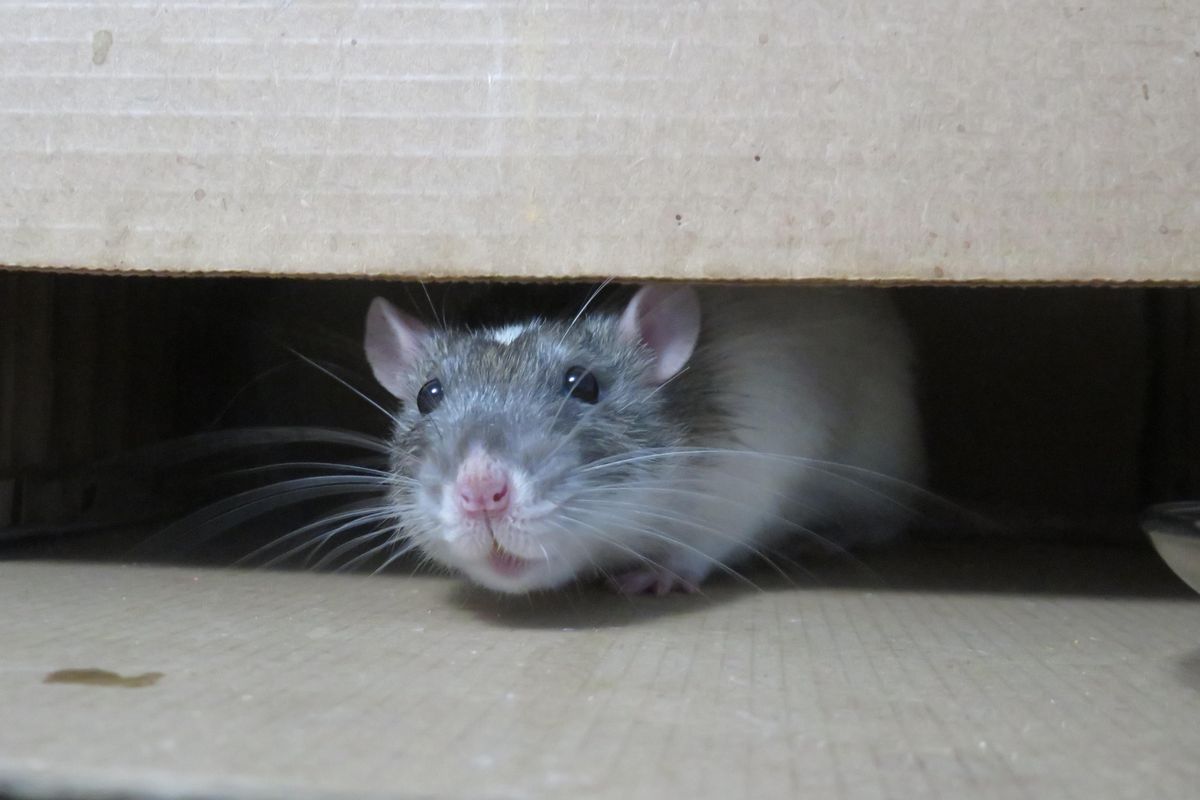It's official: Even rats love Lady Gaga. A study shows rats bop their heads to her music.
Sometimes you just have to groove.
It's official: even rats love Lady Gaga.
Every time I see a Kia Soul, I imagine it full of giant dancing hamsters dressed like little hip-hop artists bopping along to whatever music is blasting. All it took was one commercial to permanently imprint that in my mind. Now that I've learned that there was a study conducted on rats listening to music, I can vividly picture them jamming out in a tiny SUV. Thanks, Kia.
But seriously, a 2022 study from the University of Tokyo concluded that rats recognize and move to the beat of different music. What is this strangely adorable discovery, and why was it scientifically necessary?
Maybe one of the researchers just really likes rats. It's not exactly clear what prompted the research, but with the popularity of platforms like TikTok, you don't have to be a scientist to know that some animals enjoy shaking their little booties to whatever tunes their humans are playing.
Researchers from the University of Tokyo published a peer-reviewed article in the journal Science Advances that shows that humans aren't the only ones who feel the need to move when music is played. Researchers played different types of music for the rats to see how they would react. The music included selections from Lady Gaga, Maroon 5, Michael Jackson, Queen, and, of course, Mozart (because maybe pop isn't their thing). Scientists then measured the head movements of the rats as the music played at different tempos.

It wasn't just rats that participated in this little experiment. Humans also had their head movements calculated to see how the two compared when listening to the same types of music. I'm sure the scientists didn't need a study to prove that humans will bop their heads to music they enjoy, but who else were they going to use for a comparison? The hamsters from the Kia commercial were probably booked.
After playing the music at four different tempos, scientists found that the rats started feeling the groove in the 120 to 140 beats per minute range as this is where their head bops synchronized. You know who else "got the feelin'," as James Brown would say? Humans. The humans who participated had the same synchronized head bops between the same 120 to 140 beats per minute.

Researchers found that the faster the music was played, the less the rats and humans bopped their heads. While it's fun to know that Lady Gaga produced a desired head-bopping reaction in the rats, the research shows that there could be some innate ability for animals to move to the beat of music.
You won't catch the researchers swearing by animals knowing how to break out in dance just yet. The study concludes that more "studies comparing humans and animals will offer insights into the origins of music and dancing."
I think that's fair. Getting a chance to create more tiny rat dance clubs seems like an enjoyable way to spend your time, and you get to call it work. It's a winning scenario if you were to ask rodent lovers.
- Rat mama brings her babies to her human owner in super sweet viral video ›
- Lady Gaga gets best possible revenge on ex-classmates who bullied her with a Facebook group. ›
- Lady Gaga calls out interviewer's 'sexist' double standards when he asks about her 'provocative lyrics' ›
- James Brown and Pavarotti revamped a soul classic in 2002 - Upworthy ›
- Lady Gaga recorded a stunning version of Mr. Rogers’ ‘Won’t You Be My Neighbor,’ and it’s a must-listen - Upworthy ›

